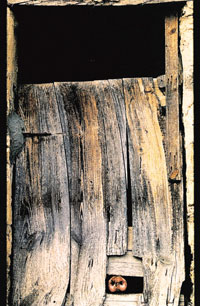It's just before midnight and I've just returned from Vila (Ibiza town) after giving the third of three rather long evening lectures for the Society of Friends of the Archaeological Museum of Eivissa and Formentera. The lectures were not about Eivissa, though, but about aspects of traditional cultures of Vanuatu in the Southwest Pacific. I'm just about 'talked out' and can't sit in front of the computer all night writing the normal length column. As the Ibicencos used to say, I'll have to make 'salera', the local equivalent of the Australian phrase 'take a sickie', rather like sneaking a day off school when one was young by pretending to be ill. The Eivissenc phrase 'fe salera' goes back to the days when many Eivissencs could find work at Ses Salines, the ancient salt pans in the SSE part of the island. A source of sea salt since time immemorial (where do you think the English word 'salary' came from?), this major possible resource to assist the economy of the island slumbered under the official ownership of the Spanish Crown, which provided only the usual overpaid officials who did almost nothing, from 1715 until about 1885. Then WHAM: 1885, the 'Industrial Revolution' hit Eivissa - or at least Ses Salines. The salt pans were 'modernised' and the export of the famous sea salt rocketed. It was a boon to the rural Ibicencos: from that time until the 1950s it was a place where a hard-up pagès in need of money (maybe to purchase an emprendada, a golden necklace for his fiancée) could rather easily find daily-rated work. The work was excruciatingly hard, particularly in the scorching summer sun, but at one time in the late 19th century there were 1000 Ibicencos working there in August! Many collapsed from exhaustion or had to take a day off, making a 'salera'. But for three generations it was just about the only source of actual money for many rural islanders, and it is said there were tracks from all over the island that lead to Ses Salines. The wages were extremely bad - some men had to work years to get enough to buy a gold necklace for their wife-to-be, or one of the famous filigree-decorated gold rings. But that's just about all there was.
Upon further reflection and enquiry a more correct translation of the Eivissenc language phrase 'fe salera' is probably 'to play truant'. Nowadays if a young Eivissenc student does (or 'makes') 'salera', it means he/she does not go to school on that particular day, but the essential is that his/her parents think that he/she does - i.e., he/she is off doing something completely different.
And that's just about all I have the energy for tonight.
Kirk W Huffman
kirkwhuffman@ibizahistoryculture.com

